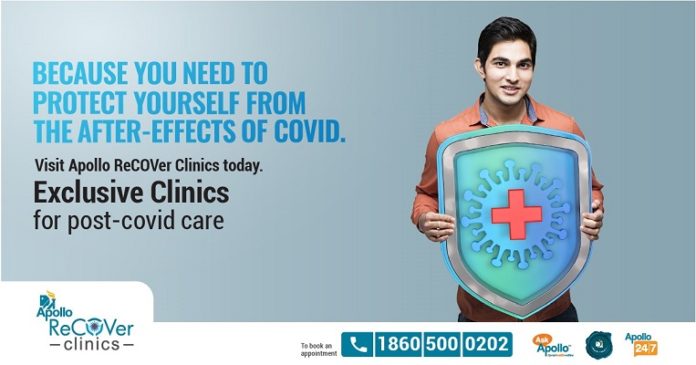Studies also reveal resurgence of COVID-19 inflammation which needs to be recognized and addressed now
It has been over 11 months since COVID-19 first exploded in China. By now, everybody knows that as the threat of this deadly disease persists, it is crucial to be aware, and follow all precautions in order to prevent the infection.
People have also come to know that getting COVID-19 once may not guarantee safety from re-infection and that this disease can show symptoms ranging from a mild cough, to serious damage to internal organs, and can even be fatal in some cases.
According to the latest study (dated 15th Dec’ 2020) in the Journal of American Medical Association (JAMA), SARS-COV-2 virus that causes COVID-19 disease is likely to linger in your body and display long-term unpleasant side-effects.
The study that was conducted to measure the rate of re-admission, cause for re-admission and rate of death till 60 days after hospital discharge after COVID-19 treatment; has shown that as many as 30% of patients getting discharged after treatment require re-admission and about 9% die.
Risk of re-admission and death, highest after 10 days of discharge from hospital
The study further reveals that there is a higher rate of re-admission and death rate within 10 days of discharge. In as many as 30% patients, the diagnoses after re-admission was COVID-19 only.
The new study also called for special attention towards those post-COVID patients who may have experienced an increase in inflammatory markers, especially D dimer and CRP, and in some, it was COVID-19 positive again. There seems to be a resurgence of COVID inflammation which must be recognized and addressed immediately.
Other possible long-term effects of COVID-19 include mental health issues and neurological conditions as some studies show that the infection may also attack the nervous system and the brain cells.
Timely intervention with appropriate clinical support can help in reducing such risks.
Tips for post-COVID care: How to reduce such risks
Reducing readmission to the hospital after recovering from COVID-19 infection is a joint effort by both patients and their caregivers. While patients have to continue with appropriate COVID-19 behavior like wearing a mask and maintaining physical distance even after recovering from the infection, here are some post-COVID care tips that can help:
- Practice strict isolation – Some studies suggest that people who have recovered from COVID-19 infection can still carry the virus. Hence, if you have just recovered from the disease, ensure to practice strict isolation and avoid any physical contact with healthy individuals.
- Consume adequate amount of warm water.
- Have adequate rest and sleep
- Avoid smoking and alcohol consumption
- Start with light exercises – Do not begin high-intensity exercises immediately after recovery from COVID-19. Begin with light exercises like stretching, deep breathing, walking (at a comfortable pace as tolerated), etc. that can help in recovery and may also help keep your mind healthy.
- Have a balanced, immunity boosting nutritious diet – A strong immunity plays an extremely important role in preventing or fighting infections and is also equally crucial for recovery. Eat freshly cooked, easy to digest soft food. Including healthy and nutritious foods in your diet can help in recovering faster and better.
- Take regular medicines as advised for COVID-19 and also for managing co-morbidities, if any. Always inform your doctor about all medications (allopathic/Ayurvedic/Homeopathic) that you are taking so as to avoid prescription interaction. In case you have to order any medicine, call our Pharmacy helpline 1860 500 1066 for home delivery
- Monitor your health at home: Monitor your temperature, blood sugar (especially, if diabetic), blood pressure, pulse oximetry, etc. (if medically advised by your treating doctor)
- If you have persistent dry cough/sore throat, saline gargles and steam inhalation can help
A holistic approach is required for follow-up care and well-being of all post-COVID recovering patients. It is important for you to continue to care for your health even after recovering from COVID-19 to avoid risk of re-admission. Look out for early warning signs like breathlessness, high grade fever, unexplained chest pain, focal weakness, anxiety, onset of confusion.
Apollo ReCOVer Clinics
To address these post COVID complications, Apollo Hospitals has launched Apollo ReCOVer Clinics. These Clinics are committed to your safety and continued health during this challenging time. Apollo ReCOVer clinics offer a robust recovery plan to ensure your safety. The Post-COVID Management Program at the clinics include:
- Multi-disciplinary assessment (Department of Pulmonology, Neurology and Cardiology)
- Mental health assessment and counselling
- Physical assessment
- Physiotherapy
- Nutritionist counselling
For appointment with our specialist at Apollo ReCOVer Clinics, call: 1860 500 1066.


















